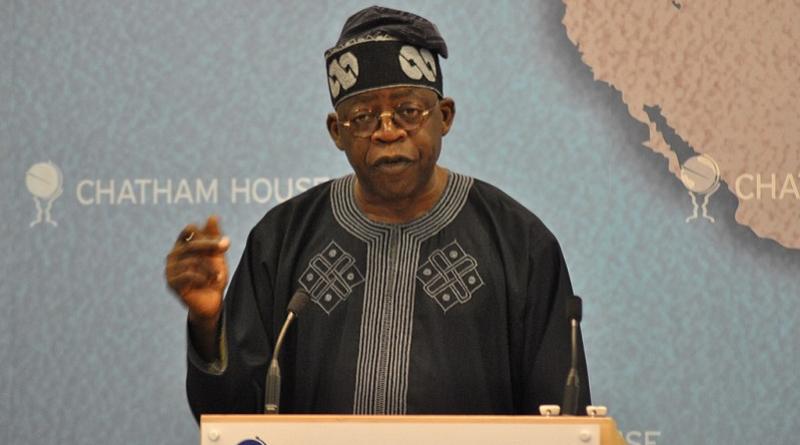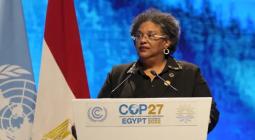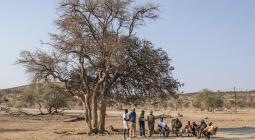Nigeria has elected Bola Tinubu as its new president following an election in which climate change played only a minor role.
Cutting emissions and the impact of rising global temperatures did not seem to be a priority for Nigerian voters in February, despite last year’s killer floods.
But the issue was not wholly absent. On the campaign trail, Tinubu took a tough line on wealthy nations’ responsibility for the climate crisis and the need for them to finance emissions reductions in developing countries.
Meeting with voters in northern Nigeria in October, Tinubu said that, unless developed countries deliver climate finance to Nigeria, “we are not going to comply with your climate change”.
He described climate change as “a question of how do you prevent a church rat from eating a poisoned holy communion”.
In this metaphor, Nigeria is the rat and the developed countries are those that are poisoning it.
Developed countries, which are disproportionately responsible for climate change, have failed to deliver the level of climate finance they promised. But developing countries like Nigeria face the worst of its impacts.
Nigerian climate expert professor Chukwumerije Okereke told Climate Home that Tinubu failed to understand that “if the West fails to pay up, Nigeria and other African countries will still be the ones that suffer the worst impacts of climate change”.
Manifesto pledges
In common with other presidential candidates, Tinubu gave out mixed messages about his approach to the energy transition.
He has promised to revive an abandoned coal mining project in Enugu state, increase oil production by tackling vandalism and theft of oil infrastructure, and increase gas production by finishing gas pipelines.
On the other hand, he said Nigeria should “diversify [its] economy away from oil and gas dependence” for economic reasons, particularly as “Western nations are gradually turning away from fossil fuel use”.
“Our history shows that the oil and gas sector is not the answer to our nation’s economic problems,” he wrote in his election manifesto. “However, it remains an important industry, vital to both our short-term economic survival and longer-term prosperity and buoyancy”.
He pledged to crack down on the practice of buring gas as a by-product of oil production, which is known as flaring.
“Nigeria still flares too much gas causing continued environmental and public health harm,” he wrote.
Tinubu said Nigeria should prioritise using its gas for electricity production domestically while, at the same time, export more gas to the European Union as it seeks alternative buyers to Russia due to the war in Ukraine.
Nigeria’s solar power should also be developed, he said, and electricity should be rolled out to rural areas. Nearly half of Nigerians do not currently have electricity.
Tinubu’s manifesto emphasises the importance of adapting to the “key challenge” of climate change, promising to develop irrigation to tackle the effects of drought.






